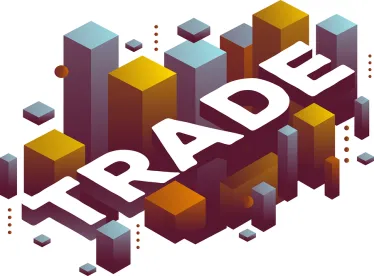In a press release published on February 14th, 2019, the European Commission announced, as part of the Digital Single Market strategy, a draft regulation aimed at creating a fair, transparent and predictable business environment for businesses and traders when using online platforms. The new rules are underpinned by an impact assessment that incorporates evidence and stakeholders’ views collected during a two-year fact-finding exercise.
Purpose
The regulation is a “regulatory attempt to establish a fair, trusted and innovation-driven ecosystem in the online platform economy and will contribute to a more innovative and competitive EU Digital Single Market…”.
The regulation will be directly applicable, preventing Member States from setting additional rules in the areas explicitly covered by the new rules.
Scope of the regulation (stakeholders and territory)
The regulation covers “online platform intermediaries and general online search engines that provide their services to businesses established in the EU and that offer goods or services to consumers located in the EU. This regulation is intended to apply throughout the European Economic Area.
- ”Online search engines” are defined as those that facilitate web searches based on a query on a subject and provide results in various formats corresponding with the search request.
- “Online platform intermediaries” include third-party e-commerce market places, app stores, social media for business and price comparison tools.
However, the following are excluded:
- online advertising, payment services, search engine optimisation and services that connect hardware and applications that do not intermediate direct transactions between businesses and consumers, as well as intermediaries that operate between businesses only (such as online advertising exchanges).
- online retailers, such as grocery stores (supermarkets) and retailers of brands, to extent that such online retailers directly sell only their own products, without relying on third party sellers and are not involved with facilitating direct transactions between those third party sellers and consumers.
A ban of certain unfair practices from platforms
- Clearer terms and conditions
Under the draft regulations, platforms must provide clear, precise and intelligible terms and conditions for sellers so they can provide free and informed consent. This obligation highlights a current context in which numerous clauses from important digital companies’ terms and conditions are frequently declared unlawful by courts.
When changing terms and conditions, at least 15 days’ prior notice will also be required, to allow companies to adapt their business to such changes.
- No more sudden, unexplained account suspensions
The draft regulation follows the 2018/334 recommendation from the European Commission dated March 1st 2018 against unlawful online content and particularly recital 20 under which content providers must be informed of a decision to delete content stored on their request or to limit its access and be able to contest the decision by counter notification.
The draft regulation sets out that digital platforms can no longer suspend or terminate a seller’s account without clear reasons and possibilities to appeal. Platforms will also have to reinstate sellers if a suspension was made in error or due to a technological problem.
More transparency
- Transparency concerning the functioning of ranking algorithms
Market places and search engines will have to indicate the main parameters that they are using to rank goods and services on their websites so that the sellers can compete effectively.
- Transparency of certain practices
If a platform provides the consumer its own goods and services, or has concluded more favourable agreements with other business partners, it will be required to inform the other sellers on the nature and content of such commercial advantages for itself or its partners.
The platforms will also have to indicate what data they are collecting and the means by which it is being processed, in particular how data is shared with business partners. Where this concerns personal data, the GDPR provisions will of course apply.
- Benefit for consumers
Countries such as France, already regulate such platforms but the rules are more consumer oriented (“Platform to consumer” or P2C). The Commission’s view is that consumers will benefit from increased transparency as the identity of the business offering the goods and services will be more visible. As they will also be able to see where general search results are influenced by a payment, for example one that was made by a website owner, consumers will be able to make more informed choices.
More generally, the EU Commission hopes that consumers will benefit from expected increases of competition, as well as better quality and lower prices of goods and services for the consumer.
Dispute resolution
The draft regulation encourages alternative dispute resolution which will help resolve more issues out of court, saving businesses time and money.
- Platforms must set up a specific internal complaint-handling systems to assist business users. The idea is to facilitate communication between platforms and sellers without immediately going to court. This will allow businesses to lodge complaints directly with the platform for example, as a result of an action or decision taken by them or as a result of a technological problem. Platforms will need to respond to complaints appropriately and communicate the outcome to businesses.
- Platform intermediaries shall name specialised mediators they agree to engage with, in their terms and conditions. Users should not have to bear more than half the costs.
Small enterprises with fewer than 50 staff members and generating less than €10 million turnover will be exempt from these obligations.
Actions by business associations
In case of any violation of the regulation’s provisions, it is proposed that organizations and associations representing business users’ interests will be able to take platforms to court to stop any non-compliance with the rules, either before a judge, or public authorities with enforcement powers appointed by Member States.
It is hoped that this will help overcome a fear of retaliation, and lower the cost of court cases for individual businesses, if the new rules are not followed.
In addition, Member States can appoint public authorities with enforcement powers, if they wish, and businesses can turn to those authorities.
Next steps
The new regulation will apply 12 months after its adoption and publication, and will be subject to review within 18 months thereafter, in order to ensure that they keep pace with the rapidly developing market.
The EU has also set up a dedicated “Online Platform Observatory” to monitor the evolution of the market and the effective implementation of the rules.
In France, the French Posts and Electronic Communications Regulation Authority (ARCEP), in a press release of 22 February 2019, welcomed the fact that the draft regulation also applies to mobile apps as “a major milestone in open devices”. “App stores are a central focus in the regulation’s enforcement, along with voice assistants which are now an integral part of online search engines. On the matter of operating systems, ARCEP is pleased to note that they are mentioned as technical means that online platforms can use to promote their own services.”




 />i
/>i

